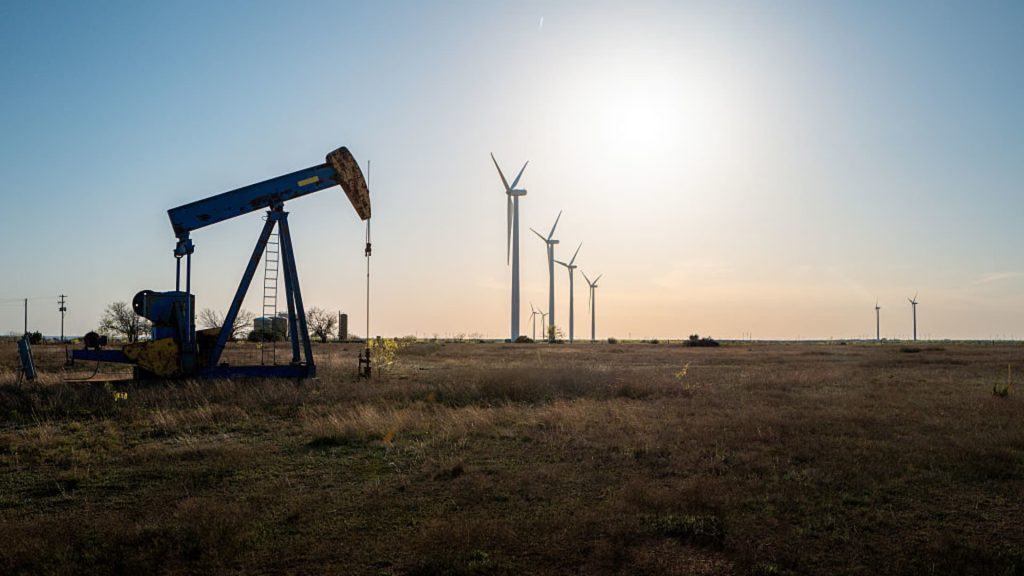On April 08, 2025, an oil pumpjack was spotted in a field in Nolan, Texas.
Brandon Bell | Getty Images News | Getty Images
In the aftermath of Russia’s invasion of Ukraine, many fund managers focused on mission-driven investments are reevaluating their stances on defense policies. Similarly, a Goldman Sachs analyst suggests that sustainable investors should reassess their positions regarding oil and gas firms.
This comes during a period when major European energy companies have significantly reduced spending on renewable energy and are now investing more heavily in fossil fuels to enhance short-term shareholder returns.
Investments centered around environmental, social, and governance (ESG) considerations generally prefer firms that excel in areas like climate change mitigation, human rights, and corporate transparency. Industries such as tobacco, fossil fuels, and armaments have often been excluded from sustainable investment portfolios.
According to Michele Della Vigna, head of EMEA natural resources research at Goldman Sachs, changes in the perception of oil and gas ownership are warranted, similar to the recent shift in sentiment towards defense stocks influenced by the conflict in Ukraine.
Current observations of extreme heat, increasing greenhouse gas emissions, ocean warming, and rising sea levels raise questions about the justification for further fossil fuel development. Most ESG investors would likely oppose this.
Ida Kassa Johannesen
Head of commercial ESG at Saxo Bank
Della Vigna presented three main reasons why ESG investors should reconsider including oil and gas stocks in their portfolios. He stressed that the transition to renewable energy will be much slower than many anticipate, predicting that peak demand for oil will occur in the mid-2030s and for gas in the 2050s. Moreover, he noted the necessity for new oil and gas projects well into the 2040s.
On May 10, 2024, an array of solar panels is generating electricity at the Lightsource bp solar farm near Rhosgoch, Wales.
Christopher Furlong | Getty Images News | Getty Images
Della Vigna argues that oil and gas firms are among the largest investors in low-carbon energy globally and disengaging from these companies may hinder the energy transition. Unlike utilities, which he describes as infrastructure builders, oil and gas firms are seen as risk-takers and change-makers in the market.
He expressed that the capabilities, financial strength, and risk tolerance of these companies are essential for affordable energy, particularly for emerging markets, and their role is integral to any credible ESG strategy. He suggested that energy companies leading the transition should be central to ESG funds, rather than seen as divestment targets.
‘Some Loosening Around the Edges’
However, not everyone agrees that oil and gas stocks should be included in ESG portfolios alongside defense stocks. Ida Kassa Johannesen of Saxo Bank warned that this comparison could be misleading, arguing the detrimental environmental effects of fossil fuel usage are irrefutable.
With the ongoing climate crisis resulting in record-breaking global temperatures and rising sea levels, she emphasized that the current situation does not support a push for further fossil fuel development.
Allen Good, a senior analyst at Morningstar, concurred that full acceptance of oil and gas within ESG investments remains unlikely. Nonetheless, he acknowledged the potential for a more lenient attitude towards energy majors, provided they ramp up investments in renewable technologies.
Good expressed skepticism about the likelihood of significant oil and gas companies entering ESG portfolios, especially when the focus is predominantly on the transition to cleaner energy sources.



